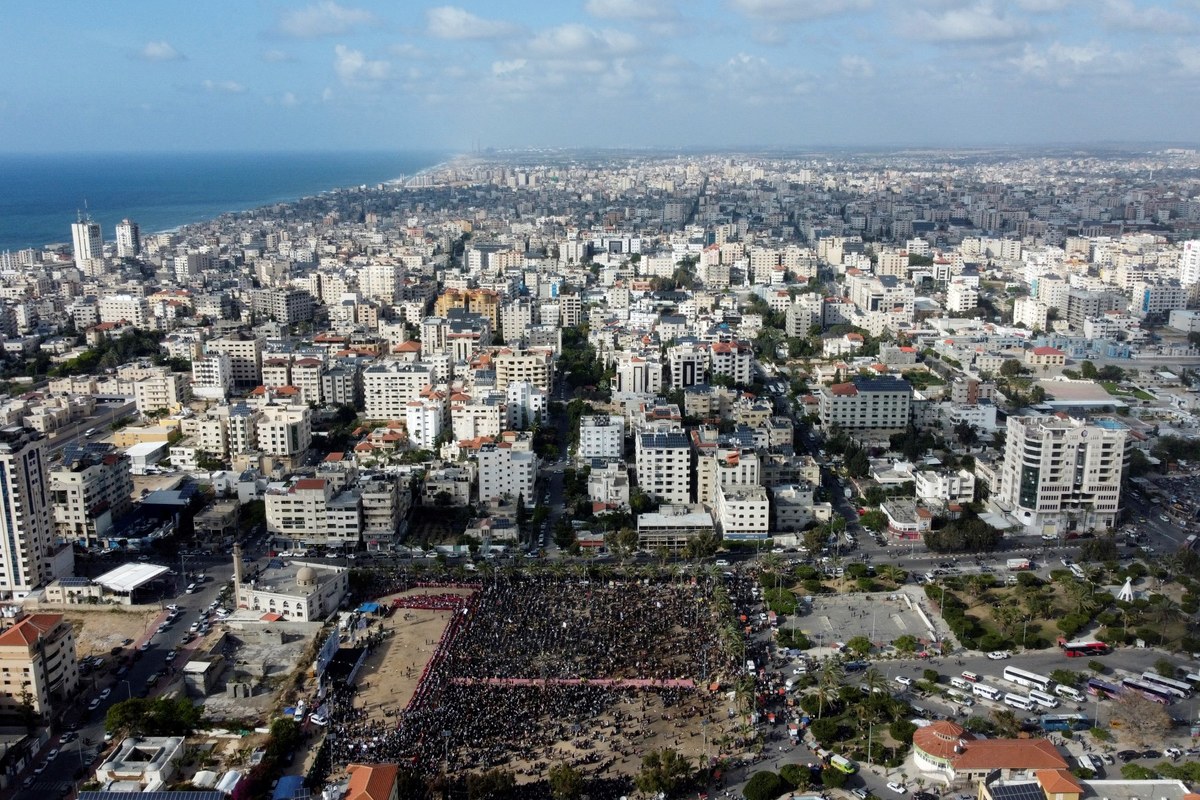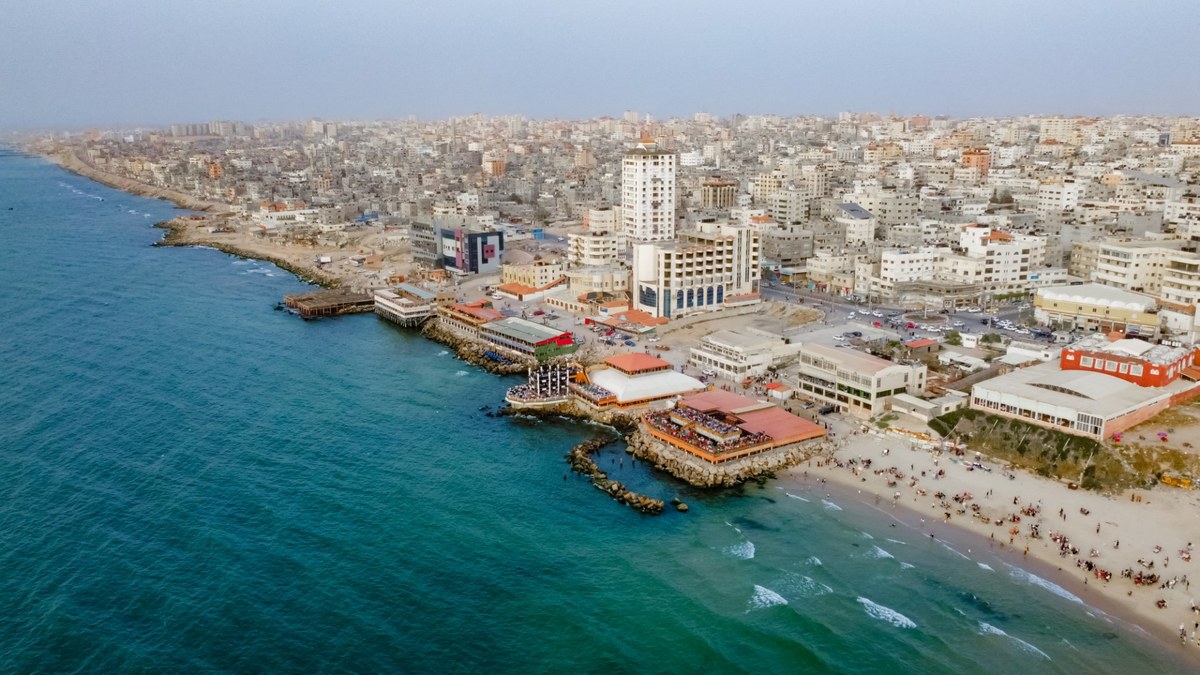GAZA: A tour of various areas in Gaza City, namely the universities district, Al-Sinaa Street, Omar Mukhtar Street, and Al-Bahr Boulevard, shows how this once-vibrant part of the strip has been reduced to rubble after weeks of relentless bombardment.
Gaza City was the most populated part of the besieged Palestinian enclave before Oct. 7, when Israel launched a bombing campaign in retaliation for a deadly Hamas attack inside Israel.
“Gaza was a very beautiful, vibrant city before the Israeli assault,” said Ahmed Hijazee, Arab News’ correspondent in the Gaza Strip. “Some 99 percent of the population were educated.”
Before the current war, Omar Mukhtar Street was one of Gaza’s busiest streets, as it was home to the central market servicing Gaza City and northern Gaza.

Gaza City before the ongoing war began in October. (AFP/File)
During the warmer months, people in Gaza used to flock to Al-Bahr Boulevard, which is lined with beaches, to cool off and enjoy the sun. In winter, the locals would visit the area to enjoy the scenery from one of the seaside cafes.

Beaches in Gaza's seaside before Oct. 7. (AFP/File)
Israeli air and land raids have leveled entire blocks in Gaza City, turned streets into fields of rubble, and destroyed local bakeries, food warehouses, and roads that were used for aid delivery.
The Israeli assault on northern Gaza, including Gaza City, before the week-long truce between Hamas and Israel forced Palestinian families to flee south, as directed by the Israeli authorities.
But following the end of the truce, Israel expanded its bombing campaign to the south, striking areas it had previously designated as safe, such as Rafah, where nearly half of Gaza’s 1.9 million displaced population are now crammed, according to Human Rights Watch.
Very few people have returned to western Gaza, seeking shelter in random empty houses that have not been fully destroyed, after the Israeli troops withdrew from it.
“People are taking refuge wherever they find water due to its scarcity,” Hijazee said.
Food, too, has become hard to come by.
“A bag of flour, which cost 35 shekels ($10) before the war, is now sold at 750 shekels in Gaza City,” he added.
In addition to destroying the infrastructure, Israel’s blockade on the strip has also prevented humanitarian aid and food, fuel and water supplies from entering Gaza.
UN agencies warned that Gaza’s population of almost 2.3 million people is at “imminent risk of famine.” It has become common for most families in the embattled enclave today to go for an entire day without eating anything.


























